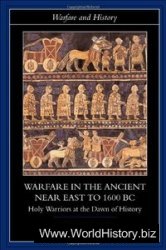What is a ‘drug’? In the broadest sense, it is any substance - medicine or poison - that has a biochemical effect on either mind or body. But in the particular sense of a drug that acts on the mind, the term is more contested. ‘Drug’, in this sense, seems not to be a neutral description but a derogatory label to be avoided. According to the industries that produce and promote them, alcohol and tobacco are not drugs; cannabis advocates claim it is not a drug but a harmless herb or a valuable medicine, and LSD enthusiasts that it is not a drug but a sacrament. Producers of coca in South America readily admit that cocaine is a drug, but maintain that its source, the coca leaf, is not: it is, rather, a revered and time-honoured element of their traditional culture. Indigenous users of substances from ayahuasca to kava to betel are appalled by the suggestion that they might be classified as ‘drugs’.
Underlying the emotive connotations of the category ‘drug’ are two overlapping but separate understandings of the term. The first definition is purely descriptive: a drug is a substance that is psycho-active - that is, producing perceptible effects on consciousness. This is the domain of psychopharmacology, in which psychoactive drugs are classified more precisely as stimulants, sedatives, psychedelics, hypnotics, deliriants or dissociatives. In this strict sense, tea, cigars and Coca-Cola are (or, at least, contain) drugs as unambiguously as cocaine or heroin.
In popular usage, however, this clinical definition has been overshadowed by another meaning, less precise but more pervasive. Over the last century, ‘drug’ has come to mean a psychoactive substance that is illegal - or, perhaps more accurately, one that lacks cultural sanction for its psychoactive use. In this sense, cannabis is a drug while alcohol is not; model-airplane glue is a drug when inhaled by teenagers; khat chewed by immigrant Somali communities in the West is seen as a drug to the extent that the communities themselves are construed as a problem; and substances such as nitrous oxide or morphine are medicines when used by doctors, and drugs when used for pleasure. The classification of something as a ‘drug’ does not simply indicate the presence of a specific chemical substance: it is also determined by non-chemical factors such as the intention behind its use, the method of administration and the social class of the user.
These overlaps and confusions, however, are not an exclusively modern phenomenon. The concept of a drug is an ancient one that has been compounded over time from disparate sources and traditions. It has been blurred and enriched by new substances that have emerged from global trade and scientific advances, and by the experiments of those who have investigated these substances at first hand to explore the hidden workings of the mind.

Scientists sample a strange new drug in this illustration to a fantasy tale by Aleister Crowley, published in Idler magazine in 1909. This was an era when new mind-altering drugs were regularly discovered by chemists, doctors and psychiatrists experimenting on themselves. (The Trustees of the National Library of Scotland, Edinburgh)




 World History
World History









